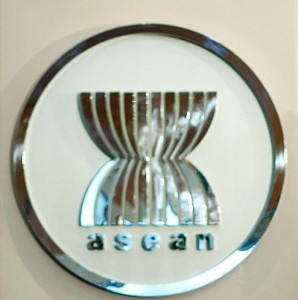
“What we need to do is no longer play the Philippine game, but a regional game especially since our stock exchanges our going to be interconnected…..so now we’re benchmarking our corporations against the other Asean corporations specifically from Indonesia, Thailand, Malaysia, Singapore, and Vietnam,” Jesus Estanislao, chairman of the Institute of Corporate Directors (ICD) said.
Estanislao was interviewed during the sidelines of the launch of the Association of South East Asian Nations (Asean) Corporate Governance Scorecard held at the Mandarin Oriental in Manila Tuesday.
Asked about the shift from the use of the older Philippine Corporate Governance Scorecard questionnaire, Estanislao said that it was necessary for the country to be able to compete with the global market.
“It’s not essential but absolutely necessary because whether we like it or not most of the investment flows are global so they look for economies that they can trust…instead of attracting $10 to $12 billion a year we should be attracting $25 to $30 billion, that’s the goal,” he said.
Asean Corporate Governance Experts, who participated at discussions during the launch, noted that it was a landmark initiative meant to bolster efforts to set up a regional community and eventually link the different stock exchanges of Asean member-nations.
“What we want to emphasize is that this score card will be for the benefit of the Asian economies because if you want to grow global, to become global player, they have to practice the corporate governance that is up to international standards,” said Sidharta Utama, Chairman of the Indonesian Institute of Directorship.
The scorecard is a project developed by the Asean and funded by the Asian Development Bank. It has been employed by Asean member-states Malaysia, Singapore, Thailand and Indonesia. The Philippines and Vietnam are the new members.
It supersedes the National Corporate Governance Scorecard implemented by the ICD in the country for the past seven years.
Under the new scheme, public companies listed under the Philippine Stock Exchange would now be screened using more than 190 questions, as compared to the previous scorecard which had only 110 questions. They would be screened on the principles of rights of shareholders, equitable treatment of shareholders, role of shareholders, disclosure and transparency, and responsibilities of the board.
Estanislao noted that the new score card was much more detailed compared from the other one, adding that new elements such as bonus points for the companies who applied best practices or practices that go beyond compliance, and penalty points imposed on firms that demonstrate poor governance, were included.
Estanislao added that for the assessment to be objective, there would be an Asean experts peer review, so that other members could objectively and transparently look into the scores of the companies.
He said that the first Asean Scorecard assessment in the Philippines will be done on October 25 and 26.

